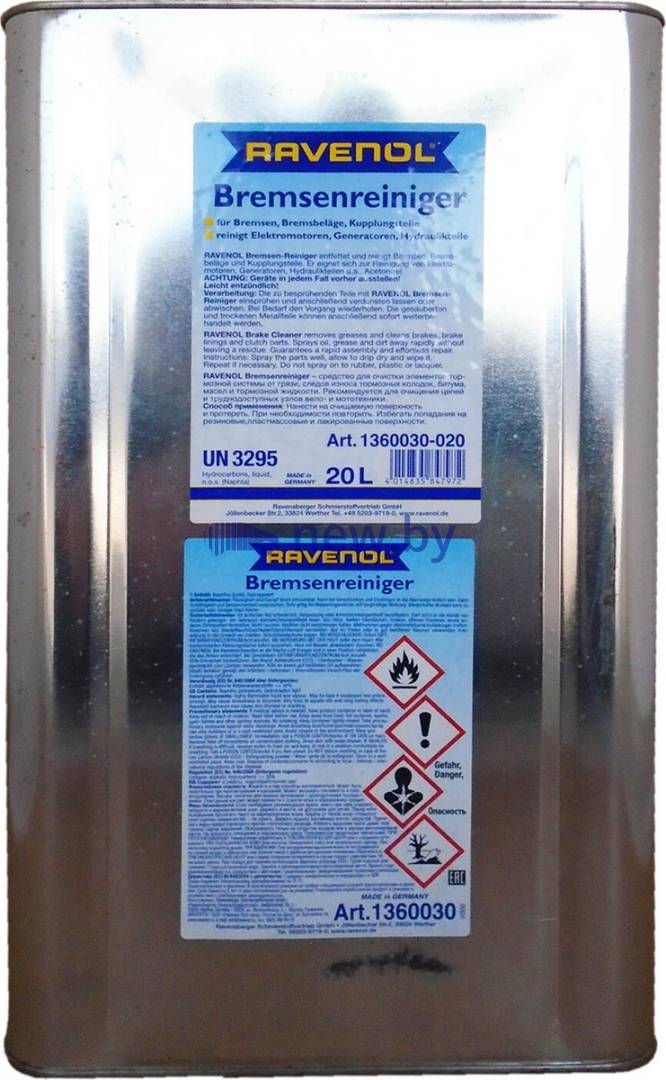Author Email:
Content
You are of course required to report to HJF any changes in the location of your IOLTA trust account. We wish you the very best in your practice of law, and thank you again for your cooperation. Properly managing a trust account can be a hassle, but losing your license to practice over sloppy recordkeeping would be far worse. Lawyers who are having trouble managing their trust accounts should promptly address the problem by getting help from a qualified professional.
Documentation can be provided by submitting the NC IOLTA Information Update Form. The NC IOLTA Information Update Form is available online or from the NC IOLTA office. As of July 1, 2010, all NC IOLTA accounts must be held at “eligible” banks. A. Arkansas lawyers must certify annually to the Clerk of the Arkansas Supreme Court that they have compiled with Rule 1.15. If a lawyer or law firm has not complied with Rule 1.15, the lawyer will be referred to the Supreme Court Committee on Professional Conduct for investigation. Unlike an IOLTA account, a firm’s credit card merchant services account should be set up using the firm’s own tax ID number.
HSBA is providing links to this third party website only as a convenience. HSBA is not responsible for the privacy policy, content or accuracy of any website accessed through a link on the HSBA website. The inclusion of links to the linked site does not imply any endorsement, approval, investigation, verification or monitoring by HSBA of any content or information contained within or accessible from the linked site.
“borrowing” Money From The Account
In some instances the provincial legislation and/or regulations which direct the foundations also prescribe specific funding formulas which are applied to the five mandates. Please use the following links to access more contra asset account information on the Mandatory IOLTA program. The response to COVID-19 has impacted access to courthouses and may change the way cases are handled. Interest on Lawyers’ Trust Account Designed for legal professionals.
Transaction costs do not include the cost of printing checks or NSF charges. The Minnesota IOLTA Program urges attorneys to familiarize themselves with service charges applied by the financial institution to IOLTA accounts. The voluntary IOLTA Program generated $500,000 for grants during . In 1989, participation in the IOLTA Program became mandatory for Texas attorneys. The program in Texas generates millions yearly without taxing the public and at no cost to lawyers or their clients. Only client funds that are nominal or held for a short period of time may be deposited into IOLTA accounts. The Supreme Court of Texas established IOLTA as a mechanism for funding legal aid for low-income Texans by collecting interest on client trust accounts in 1984.
If you continue to get this message, please do not enter any confidential information on our site. If you don’t have time to manage your own bookkeeping and are thinking of hiring outside help, make sure to hire a bookkeeper who has experience with law firms . You can’t, for example, pay for your firm’s operating expenses directly out of an cloud accounting podcast.
If you are an attorney practicing in Virginia and do not participate in the program, we encourage you to do so today. Under the IOLTA program, interest earned on lawyers’ pooled client trust accounts is remitted by the banks directly to LSCV to fund the provision of civil legal services to the poor. A guidebook for attorneys and financial institutions can be obtained below. It takes about 3 minutes to fill out a Request to Establish an IOLTA account form that is then submitted to the bank and will take no longer than setting up any other kind of trust account. If you have any questions about setting up an IOLTA account or want information about which banks pay the best rates and waive fees for IOLTA accounts, please give us a call at and ask for our IOLTA Coordinator. Often, the amount of money that a lawyer handles for a single client is nominal and/or held for only a short period of time. Traditionally, lawyers have placed these individual deposits together into pooled trust accounts, called general trust accounts.
AccountDebitsCreditsTrust Bank Account $5,000.00Client Trust Liability $5,000.00Let’s say on that same day, your firm completes four hours of work on Doris’ file, at a rate of $100/hr. That means your firm can withdraw $400 from Doris’ IOLTA account and transfer it into your firm’s business account. No matter which accounting solution you use, you should keep a separate ledger for each individual client account, even if it’s small or for a short period of time. Here’s what Doris’ individual ledger would look like after the transaction we mentioned above. The Preferred Financial Institutions reflect support for the overall goals of the Foundation and a commitment to community-based banking. These institutions are regularly recognized in Bar Foundation publications, on the Foundation’s website and in the New Hampshire Bar News, a monthly newspaper sent to all members of the New Hampshire Bar Association.
I Am An Out Of State Attorney, But Am Licensed In Minnesota Do I Need A Minnesota Trust Account?
It is governed by an eleven member board of directors approved by the SJC and distributes, in addition to IOLTA funds, state appropriated funds to legal service providers. The interest on the IOLTA accounts is remitted to the Foundation, which grants the money to nonprofit organizations that provide free civil aid to low-income Texans.
For client deposits that are large enough or to be held for a long enough period of time to warrant the cost of administering an individual account, lawyers are obligated to set up a separate interest-bearing account for the benefit of the individual client. Generally, however, the deposits are not large enough or held long enough to generate interest that would offset the costs of maintaining a separate account. Consequently, attorneys routinely pool clients’ funds in a single client trust account. Neither is unearned revenue a liability the attorney nor the client can receive interest, so the interest is paid to the Arkansas Access to Justice Foundation to support law-related, charitable and educational activities. Attorneys often handle their clients’ money, settlement checks, for example, or advance payments for court costs or other expenses. Any lawyer who handles client funds that are too small in amount or held too briefly to earn interest for the client must participate in the Interest on Lawyers’ Trust Accounts program.
There is no legitimate way to borrow from a trust account, but some attorneys try. Meanwhile, $9,850 remains in the IOLTA account, and it’s earning interest. That interest goes to fund a variety of legal services, typically for the poor, under the management and oversight of the IOLTA program.
- However, an individual client′s funds are often not large enough, nor held long enough, to earn any interest in a trust account.
- If a client′’s funds are a large amount, and will be held for a long time, the lawyer may keep the client’s funds in a separate account and the client may receive the interest earned.
- The IOLTA program provides a cost–effective way for lawyers to safeguard these funds in a pooled account, with many other clients′ funds, where the pooled funds can earn interest, which is used for the public good.
- Proper management of a lawyer’s IOLTA (also commonly referred to as a “trust account”) is highly regulated by each respective state bar.
- The lawyer is responsible to determine the best way to safeguard the funds according to Supreme Court guidelines.
- It is incumbent on the owner of a law firm to undertake adequate training for the responsibilities of managing an IOLTA client property trust account.
Lawyers should continue to establish separate, interest-bearing accounts for individual client’s funds where the sum is large enough or when the time of the deposit is of sufficient duration to justify the cost of opening, closing and administering the account. In October of 1994, the Arkansas Supreme Court modified Arkansas Model Rule of Professional Conduct 1.15 to make the previously voluntary IOLTA program mandatory for lawyers who handle qualifying funds.
Interest on Lawyer Trust Accounts is a method of raising money for charitable purposes, primarily the provision of civil legal services to indigent persons, through the use of interest earned on certain lawyer trust accounts. The establishment of IOLTA in the United States followed changes to federal banking laws passed by Congress in 1980 which allowed some checking accounts to bear interest. The Florida Bar Foundation bookkeeping launched the first American IOLTA program in 1981. The rules provide that the interest on the pooled trust accounts paid to the IOLTA program is “net of any transaction costs.” (Rules of Professional Conduct 1.15). Thus, any transaction costs the financial institution may impose for maintaining the account would be deducted by the institution from the interest that was paid over to the IOLTA program.
Legality
The reason the accounts were non-interest-bearing is that prior to 1981, commercial banks were prohibited by federal law from paying interest on demand deposits (e.g. checking accounts). In addition, the lawyer could not earn interest on the account because it is unethical for attorneys to derive any financial benefit from funds that belong to their clients. The New Hampshire IOLTA program became the second IOLTA program to operate in the United States. Now all 50 states, the District of Columbia, U.S. Virgin Islands, Puerto Rico as well as the Canadian provinces, have IOLTA programs. The New Hampshire IOLTA Program has generated over $34 million for civil legal services and civics education in our state since 1982. IOLTA accounts are interest-bearing general trust accounts, from which banks forward the interest net of service charges to the State Bar’s IOLTA program.
Attorneys should make sure that their overall trust account is balanced at the end of the month, and they should also make sure that each client’s account is balanced. This simple step will sometimes catch errors that could have resulted in a bounced trust account check. In no case is an attorney allowed to use a trust account as an operating account, income summary a savings account, or a place to hide assets. Sometimes either the attorney or someone with access to the trust account has reached a point of greed or desperation. Attorneys with substance abuse problems or gambling addictions can be particularly vulnerable to this type of mistake, but sometimes it happens for reasons that don’t appear clear.
In no event will HSBA be responsible for any information or content within the linked site or your use of the linked site. And although it doesn’t happen often, sometimes law offices and all their records get destroyed. A fire can incinerate those paper files pretty quickly as well as destroy the computer hard drive. Feel free to contact the NC IOLTA staffif you have any questions about opening an IOLTA account. The Boston Bar Foundation is governed by a board of trustees composed of fifteen members.
You Are Now Leaving The Hawaii State Bar Association Website
IOLTA accounts are interest-bearing general trust accounts, from which banks forward the interest net of service charges to the State Bar’s IOLTA program, which uses the money to fund law-related charitable causes. Only dedicated lawyer trust accounts (interest-bearing accounts maintained for the sole benefit of a single client or transaction) will not be IOLTA accounts. A. The Supreme Court of Arkansas created the Arkansas IOLTA program in 1984,In Re IOLTA, 283 Ark. 252, 675 S.W.2d 335 , to provide funds for legal services to the poor, projects that improve the administration of justice and legal education. Under the program, interest is paid on nominal or short-term trust deposits held in a lawyer’s or law firm’s client trust account, with the interest remitted directly by the financial institution to the Arkansas Access to Justice Foundation. Attorneys routinely receive client funds (commonly referred to as “trust money”) to be held in trust for future use.
Can my lawyer settle my case without me?
One question that some people ask me just when they’re hiring me is, “Can you settle my case without my consent?” The answer to this question is simply no, an attorney cannot settle your case without your consent. A lawyer is not allowed to settle your case without your consent as it would be an ethical violation.
Regardless of how your law firm does its accounting, the system that you use to keep track of an IOLTA account must conform to the principles of double-entry accounting. While each IOLTA program follows similar guidelines, rules do vary by state. (For example, state Supreme Courts have made IOLTA mandatory in some states and voluntary in others.) That’s why it’s important to consult your State Bar Association and a professional accountant before finalizing your accounting setup for IOLTA. Every state, along with the District of Columbia and the Virgin Islands, operates an IOLTA program.
Failing To Properly Track Client Funds
Such IOLTA accounts can only be kept at approved financial institutions. Whenever a lawyer has funds that belong to a client, state ethics rules require that those funds must be kept in a trust account that’s separate from the lawyer’s general operating account. When a lawyer has possession of relatively small sums , the lawyer is allowed to pool these client funds into a single IOLTA account, rather than opening a separate trust account for each client. Interest earned on the account is transferred to a fund supporting legal aid for the poor and public service programs.
What is the difference between an escrow account and a trust account?
An escrow account contains funds used to pay expenses associated with real property you buy, while a trust account holds funds the account owner plans to distribute to beneficiaries when he dies.
Please do not enter any confidential information on our site until you upgrade your browser to its latest version. 1st Source values the safety and security of our clients’ accounts and information. The Internal Revenue Service has concluded that interest income from IOLTA accounts payable to a tax–exempt organization, such as the Foundation, is not taxable to the client or the lawyer. IOLTA programs have now been created in 50 states, the District of Columbia, and the Virgin Islands. The U.S. Supreme Court has determined that IOLTA programs are allowed because the interest is used to support non–profit agencies that benefit communities with law–related services. The funds deposited in your client’s accounts don’t belong to you—in fact, they are funds you owe your clients.
IOLTA programs also operate successfully in a number of Canadian and British jurisdictions. On November 20, 2008, the FDIC issued a ruling that provides unlimited coverage through December 31, 2009 to deposits held in https://www.bookstime.com/s. See the Executive Summary from the FDIC, page 7, for more information. constitute a charitable contribution deductible by the attorney/law firm or client.
188 total views, no views today








